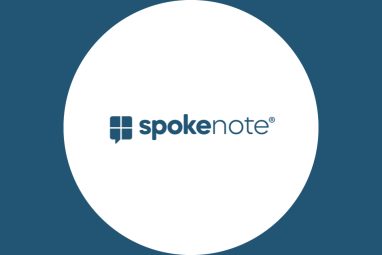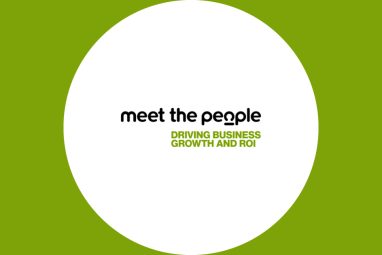GCC Tech Start-ups Cautiously Optimistic About Post-Pandemic Future
Across the GCC bloc, fingerprint and facial recognition regulate entry into factories, ensure employee attendance, and even offer access to telephone records. But with the coronavirus disease (COVID-19) pandemic making people recoil at the thought of touching public surfaces, biometric identification providers have had to rethink their business. Zain Moosa and Syed Abrar Ahmed launched […]
Topics
What to Read Next

Across the GCC bloc, fingerprint and facial recognition regulate entry into factories, ensure employee attendance, and even offer access to telephone records. But with the coronavirus disease (COVID-19) pandemic making people recoil at the thought of touching public surfaces, biometric identification providers have had to rethink their business.
Zain Moosa and Syed Abrar Ahmed launched Liber Health around the time the first COVID-19 cases were surfacing, so had to go back to the drawing board.
“We saw the inability to use traditional fingerprint identification due to the risk of contagion from physical contact. Similarly, facial recognition also became useless because everyone was wearing masks,” says Moosa, whose company is incorporated with the UAE’s in5 Tech platform.
Liber Health’s patent-pending technology uses optical iris scans in combination with blockchain systems for identity control, privacy, health data transfers and coronavirus health checks. The company now wants to expand into Saudi Arabia, the US and Central Asia. New ventures appear to be surging globally as entrepreneurs in major economies react to new market demands, and laid-off employees put their experience to work for themselves.
In the US, start-up applications in the third quarter of 2020 were 82 per cent higher year-on-year, with France and Germany registering similar increases. In the Middle East and North Africa (MENA) region, entrepreneurs are launching new ventures or adapting existing operations in response to a pandemic-altered reality.
In June, Dubai tech experience company SmartCitti teamed with UK-based immersive map maker WRLD3D to launch the SafeDistance app. This office navigation and planning tool creates a 3D digital replica of the real world so people can get around work premises safely while adhering to social-distancing rules, says Smart Workplace Director Nigel Fox.
Using GPS tracking, the app supports indoor navigation systems that allow people to get around a building safely, being alerted to potentially dangerous congested areas, offering help and monitoring employees’ moods. This solution is arguably even more important in light of uneven vaccination levels.
“SafeDistance is a response to the pandemic, but at SmartCitti, our sights are set on enabling people (to) interact and communicate in a safer, smarter and happier environment with a new trillion-sensor economy around the corner,” Fox said.
Also bullish about future demand is Letswork, a provider of flexible co-working spaces bookable through its app.
“We do not expect things to regress to pre-pandemic situations. The future of work is up for redefining in the months to come,” says co-founder Hamza Khan.
It is difficult to predict a percentage increase in 2021 over 2020 given that conditions may change overnight, but flexible co-working industry estimates suggest a 90 per cent surge in regional demand, he says.
According to Khan, enterprises will gravitate towards a hybrid between all-office occupancy and all-remote teams.
“This will see companies inject more flexibility into their commercial leases and will, in turn, increase the attractiveness of flexible workspace solutions.”
Khan believes recent government reforms will boost the opportunities for entrepreneurs across the Middle East and North Africa, benefiting flexible solutions in the process.
“Necessity is the mother of invention. We are excited to see new businesses flourish in the region as solutions to COVID-related problems, and also for the new way of life the world is getting used to,” he said.
Also Read: The Biggest Opportunities for Mobile Brands in 2021
Not only is a response to the pandemic not enough, but entrepreneurs must plan for a sustainable future. Moosa is among those thinking ahead, with a plan to connect biometric identification information across different system providers through distributed ledger technology, so a single scan can run through multiple databases securely.
He believes the platform could save thousands of lives currently being lost due to medical errors caused by a lack of auditable health data.
“Now more than ever, we need to break down data silos and solve the problem of citizen misidentification and data blocking,” Moosa said.
“We believe there is an amazing opportunity for secure and auditable data transfer which will allow the world to be ready for the next pandemic.”









































































































